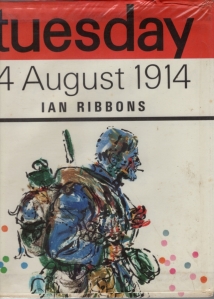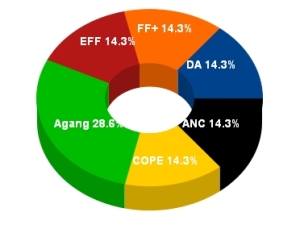Between mountains
 Between Mountains by Maggie Helwig
Between Mountains by Maggie Helwig
My rating: 5 of 5 stars
At one level this is a love story. Daniel is a journalist who has been reporting on the Wars of the Yugoslav Succession. He meets Ljilja, who is an interpreter at the war crimes tribunal at the Hague. One of her professional obligations is confidentiality, she should not speak to journalists about anything she hears. And Daniel’s obligation as a journalist is to report what happens, while protecting his sources. They are attracted to each other, but their professional obligations are in conflict.
Once a month a small group of us meet at a cafe for informal discussions of Christianity and literature and when we met last week my wife Val mentioned this book, which she had just finished reading. I’ve already mentioned some of the things that struck her in a report on that gathering here Neoinklings: alienation and otherness | Khanya. One of the bits she read out at the gathering was about the Orthodox monks at Decani in Kosovo, who gave asylum to those fleeing from the violence, and urging people to talk instead of fighting.
And that is really what the book is about — the inability to communicate, which breaks down into violence.
One of the things that struck me, and which is alluded to in the book in passing, is that at the very time when South Africa was turning from violent confrontation to talking, and abandoning apartheid, much of Eastern Europe was going in the opposite direction. I’ve also dealt with this more fully in this article Nationalism, violence and reconciliation, which I think also gives some of the background story for this novel. And so the book rings true.
I recall a member of our church, a school teacher who originally came from Dubrovnik, whose father was an Orthodox priest, saying that people she had grown up with and gone to school with, whom she had regarded as friends and neighbours, would no longer talk to her, no longer answer her letters, because of the hatred being fostered between different ethnic groups.
And the descriptions of those rising ethnic barriers captured for me the essence of the spirit of apartheid. Yugoslavia was entering a nightmare that we were just leaving. One of the characters, accused of war crimes and awaiting trial…
He had felt the cold clear satisfaction of a job done well, the decisive pleasure of colours shifting on a map, the weight of a gun at his waist. But only because it had to happen, there was a force of history behind him, if it had not been him it would have been someone else, anyone else, history would have its way.
And I could picture the apartheid apparatchik in his office in Pretoria, looking at his map with satisfaction on receiving a report of these people moved from that area, those people moved to this place, as the territory and its population changed to conform to the Platonic ideal of a map in his office.
And again the same character in the novel, echoing the same faceless bureaucrat in Pretoria:
To be able to say, I will draw this line here, and these people will be on the other side of it. Apart from us. So that we can be alone, and pure and safe, and these people will be the darkness of the other side. No one who has not had this chance could understand the sweep of it. The exaltation.
And there it is again, the essence of the unclean spirit of apartheid, exorcised from South Africa, moving to the Balkans, but not excluding the possibility of returning. No, not at all.









